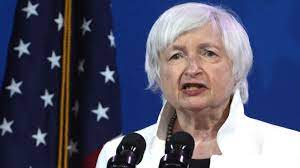As concerns over the effectiveness of debt relief initiatives continue to mount in Africa and other regions globally, development experts and financial analysts have intensified calls for reform of the mechanisms themselves, and debt restructuring more broadly.
The calls are being made as the impact of the Debt Service Suspension Initiative (DSSI), a G20-run scheme that offers a moratorium on bilateral loan repayments owed to G20 members and their policy banks as well as the IMF-managed increased allocation of special drawing rights (SDRs) remain minimally felt in beneficiary countries.
For instance, a researched report by the Oxford Business Group (OBG) exclusively sourced by our correspondent indicated that the from the DSSI, which was rolled out in June 2020 and is available to 73 low-income countries, only 43 countries secured $5.7bn in debt relief through the initiative. Of this, $2.5bn came from the Paris Club, which does not include major creditors like China. Last year, $5.7bn in debt payments was deferred under the DSSI.
According to the OBG, the $5.7bn in DSSI debt relief secured between May and end-December accounted for just 12% of the participating countries’ public and publicly guaranteed debt service over the period.
Similarly, although on August 2 the IMF’s Board of Governors approved the allocation of $650bn worth of SDRs to bolster global economic recovery, while not considered a blanket solution to COVID-19-related economic problems, the allocation of SDRs, the highest to be allocated by the Fund since 2009, is expected to help emerging markets address a liquidity squeeze.
But analysts believe that like other mechanisms, the SDR may not make much difference in emerging markets’ strive for improved funds, especially given the huge drop in bilateral aid to them last year.
Apparently concerned about the minimal results of the debt relief mechanisms, the European Network on Debt and Development (Eurodad), a civil society organisation, had flawed the fact that multilateral development banks and private lenders were not required to participate.
In a report published in October 2020, Eurodad calculated that 24% of the debt payments due to be made by countries participating in the DSSI between May and December last year were actually subject to potential debt suspension.
When expanded to all developing countries, including those not eligible for the DSSI, but excluding China, Mexico and Russia – the initiative covered 1.6% of all debt payments due in 2020.
In addition to arguing for private sector creditors to be incorporated into schemes like the DSSI, Eurodad believes that countries with unsustainable debt levels should have a portion of their debt loads cancelled, rather than simply deferred.
This is even as the OBG reported that much debate had also surrounded the implementation of SDRs, which will be available from August 23.
Eurodad also raised concerns that high-income countries would account for two-thirds of the new liquidity, and that low-income markets would have to share $7bn of the $650bn total, given that SDRs are normally allocated based on member countries’ IMF quotas.
It is against the backdrop that the IMF quotas are often based on GDP that the U.S. Secretary of the Treasury, Janet Yellen, had advised that G20 countries should pass on their SDR allocations to less developed countries.
Findings on the debt mechanism initiatives, including the G20 Common Framework for Debt Treatments Beyond the DSSI, showed that some African and European leaders, including the presidents of France, Rwanda, Senegal and South Africa, had written open letter in May 2021 in which they called on wealthier nations to redistribute their SDR allocations to help with Africa’s post-pandemic recovery.
The OBG further reported that analysis from Citibank earlier this year suggested that if the allocation followed IMF quotas, it would more than double Zambia’s gross international reserves and increase Zimbabwe’s six-fold while other emerging markets such as Argentina, Ecuador, Ghana, Kenya and Sri Lanka were also expected to see their foreign exchange reserves rise by more than 10%.
Although the exact breakdown of SDR allocations is unknown, the IMF had announced on August 2 that around $275bn would go to emerging markets and developing countries.




